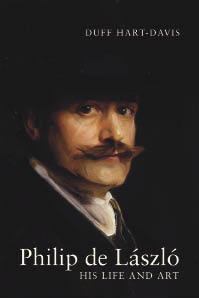The last words of Hungarian-born portraitist Philip de László, spoken to his nurse, were apparently, ‘It is a pity, because there is so much still to do.’ As Duff Hart-Davis’s biography amply demonstrates, for de László, art — which he regarded as ‘work’ as much as an aesthetic vocation — was both the purpose and the substance of his life.
The last words of Hungarian-born portraitist Philip de László, spoken to his nurse, were apparently, ‘It is a pity, because there is so much still to do.’ As Duff Hart-Davis’s biography amply demonstrates, for de László, art — which he regarded as ‘work’ as much as an aesthetic vocation — was both the purpose and the substance of his life. De László himself estimated that he completed 2,700 full-scale portraits in oils over the course of a fifty-year career. Researchers busy on the artist’s catalogue raisonné assert a higher figure. De László’s was undoubtedly a busy life. Whether it was also in the broader sense a full life remains largely unanswered in the present account.
Certainly de László took no account of modern hangups over work/life balance. He was a determined and ambitious man, appealingly free of self-congratulation but relentlessly focused on the next ‘big thing’, be that a commission from the King of England or the President of the United States (both boxes were ultimately ticked: in the latter case he painted not one but three US presidents). Although he paid lip service to the idea of undertaking a grand history or genre subject, which he hoped would raise his reputation to a higher plane, for the most part he was free of any anxiety that portraiture was a facile undertaking, trading in flattery and worldliness. ‘The longing to do daily better keeps one in constant enthusiasm,’ he wrote to Princess Helen of Greece. He worked with speed, miraculous facility and apparently unflagging gusto. When his equanimity failed him, it was always behind closed doors, to the perpetual unsettlement of his long-suffering wife, Lucy.
De László was born Fülöp Laub, the son of a poor and irascible tailor, in Pest on 30 April 1869. Afterwards he changed his name to Philip and later still became a British national. In 1912, the Emperor Franz Josef of Austria, who was also King of Hungary, raised him to the Hungarian nobility, bestowing on him the hereditary family name and prefix of ‘de Lombos’. It was one of many honours and awards showered on de László by grateful monarchs and governments. Gongs and decorations were matched by ever-escalating fees: de László once charged American clients the equivalent of £262,000 for a double portrait and Hart-Davis claims that, at the time of his death in 1937, he left an estate rivalled by only two previous artists in British history.
Inevitably his reputation suffered an eclipse on his death. Almost all his paintings were commissions and few were ever offered for public sale. Society — and fashions in art — left de László behind. The social revolutions of two world wars would turn the man labelled in the popular press ‘the Painter of Queens’ into a historical curiosity, as obsolete as the mostly throneless crowned heads his artistry had transformed. For the biographer this is either the point of de László — his role as last ‘grand manner’ chronicler of royal and aristocratic Europe — or the challenge. Certainly, as Duff Hart-Davis acknowledges, de László’s journals and biographical writings often read like extracts from Jennifer’s Diary. This fracture is compounded by Hart-Davis’s own occasional lapse into Barbara Cartlandisms:
In these well-appointed premises he worked harder than ever, and in seeking commissions he quickly infiltrated the ranks of the British nobility with the charm and good manners that had won him so many friends on the Continent and in America.
No account could chronicle more assiduously than this de László’s distinctive genius or his glittering career. As in the portraits themselves, the man wielding the brush is glimpsed only fleetingly.






Comments